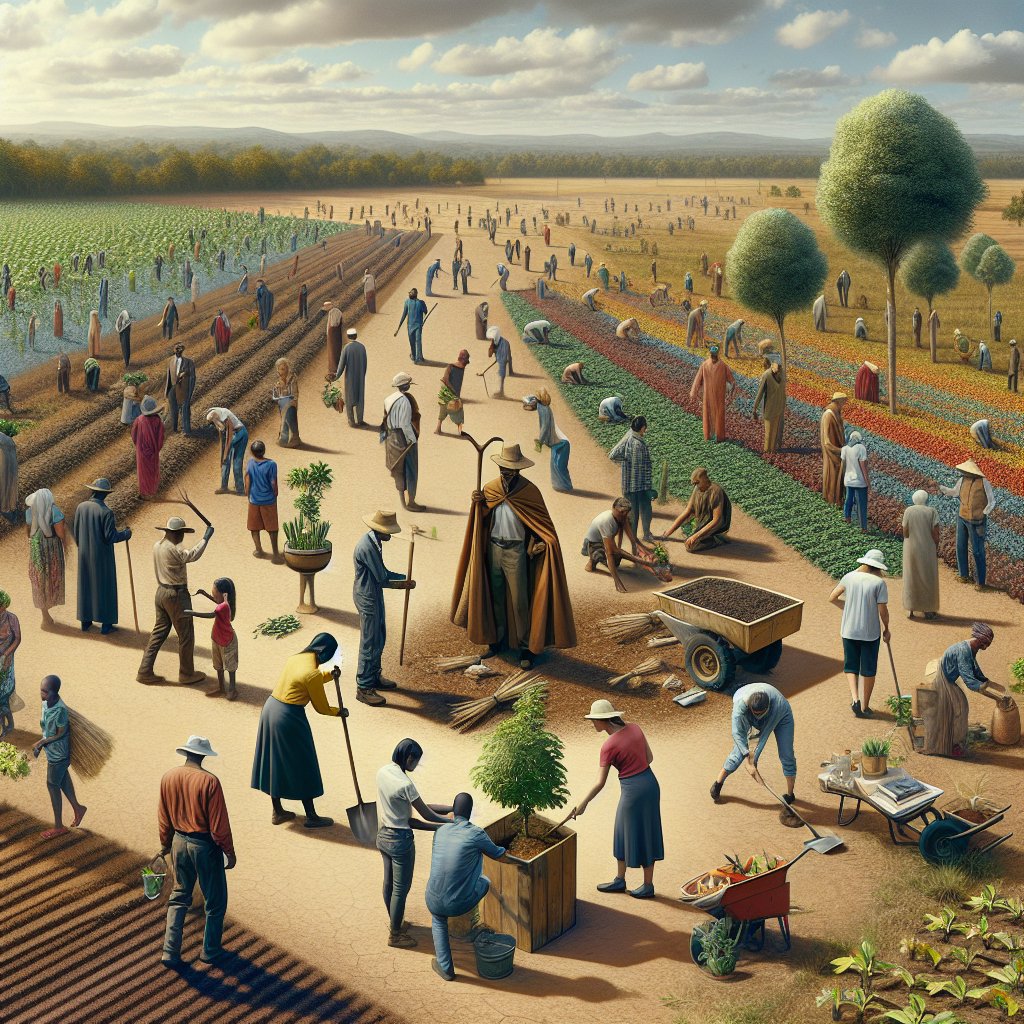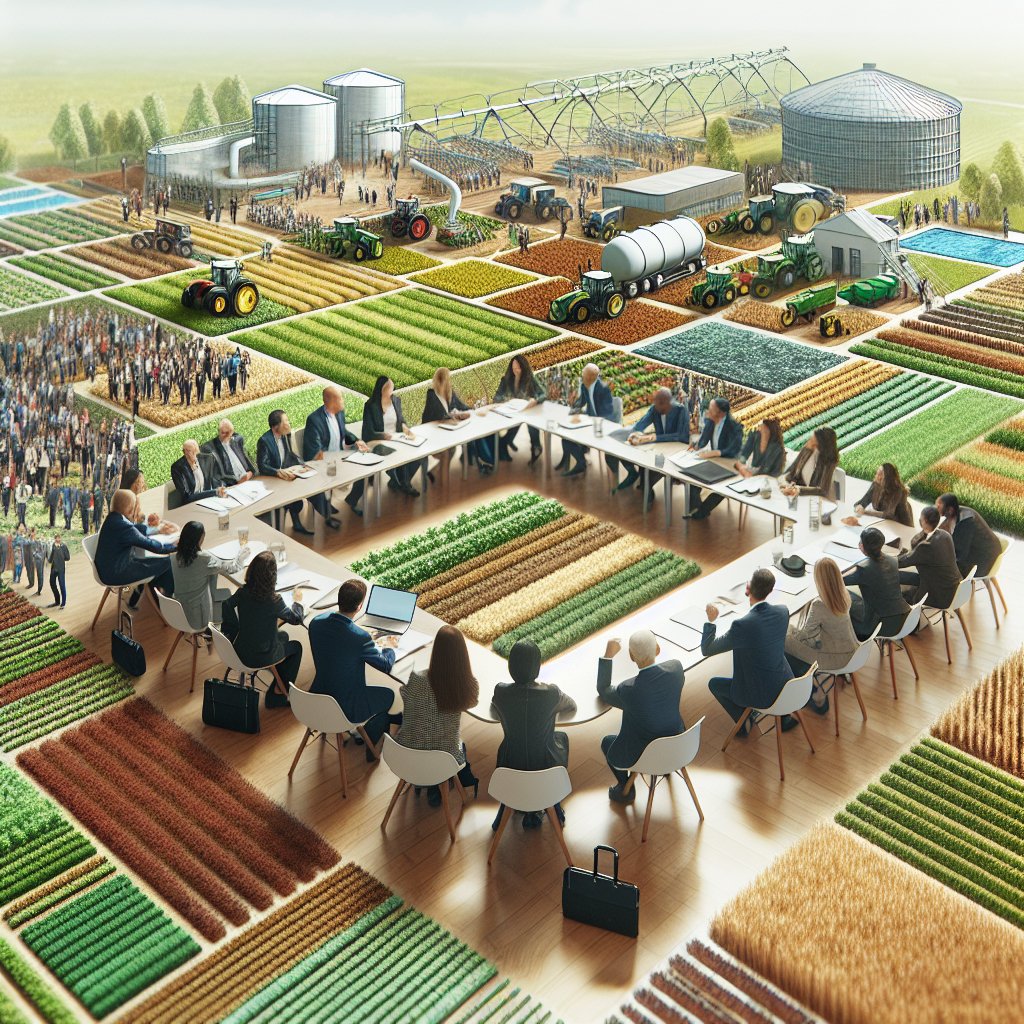The role of NGOs in supporting global agriculture is increasingly vital as the world faces numerous challenges related to food security, climate change, and sustainable development. Non-governmental organizations (NGOs) have emerged as key players in the agricultural sector, providing support, resources, and advocacy to improve farming practices, empower local communities, and promote sustainable agricultural methods. This article explores the multifaceted contributions of NGOs to global agriculture, examining their impact on food security, environmental sustainability, and community empowerment.
Understanding the Role of NGOs in Agriculture
NGOs operate in various capacities within the agricultural sector, often filling gaps left by government initiatives and private enterprises. Their roles can be categorized into several key areas:
- Advocacy and Policy Influence: NGOs often advocate for policies that support sustainable agricultural practices and food security. They work to influence government policies, ensuring that the voices of farmers and local communities are heard in decision-making processes.
- Capacity Building: Many NGOs focus on training and educating farmers about best practices in agriculture. This includes teaching sustainable farming techniques, pest management, and soil conservation methods, which can lead to increased productivity and resilience against climate change.
- Research and Development: NGOs often engage in research to develop innovative agricultural solutions. They collaborate with academic institutions and local communities to create technologies and practices that are tailored to specific environmental and social contexts.
- Resource Provision: NGOs frequently provide essential resources such as seeds, tools, and financial support to farmers, particularly in developing countries. This assistance can help farmers improve their yields and income.
- Community Engagement: NGOs work closely with local communities to understand their needs and challenges. By fostering community participation, they ensure that agricultural initiatives are culturally appropriate and widely accepted.
Impact on Food Security
Food security is a pressing global issue, with millions of people facing hunger and malnutrition. NGOs play a crucial role in addressing these challenges through various initiatives:
Promoting Sustainable Agricultural Practices
One of the primary ways NGOs contribute to food security is by promoting sustainable agricultural practices. These practices not only increase food production but also protect the environment. For instance, NGOs often advocate for organic farming, agroecology, and permaculture, which enhance biodiversity and soil health. By training farmers in these methods, NGOs help them produce food in a way that is both environmentally friendly and economically viable.
Emergency Response and Relief Efforts
In times of crisis, such as natural disasters or conflicts, NGOs are often at the forefront of emergency response efforts. They provide immediate assistance to affected communities, including food distribution, agricultural inputs, and support for rebuilding livelihoods. This rapid response is crucial in preventing long-term food insecurity and helping communities recover more quickly.
Strengthening Local Food Systems
NGOs also work to strengthen local food systems by supporting smallholder farmers and promoting local markets. By connecting farmers with consumers, NGOs help create a more resilient food system that is less dependent on global supply chains. This not only enhances food security but also boosts local economies and empowers communities.
Environmental Sustainability and Climate Resilience
The agricultural sector is a significant contributor to environmental degradation and climate change. NGOs are actively working to mitigate these impacts through various strategies:
Advocating for Climate-Smart Agriculture
NGOs promote climate-smart agriculture (CSA) as a way to increase productivity while reducing greenhouse gas emissions. CSA practices include crop diversification, improved water management, and the use of renewable energy sources. By educating farmers about these practices, NGOs help them adapt to changing climate conditions and reduce their environmental footprint.
Conservation of Biodiversity
Many NGOs focus on the conservation of agricultural biodiversity, which is essential for food security and ecosystem health. They work to preserve traditional crop varieties and livestock breeds, which are often more resilient to pests and diseases. By promoting the use of diverse crops, NGOs help farmers build resilience against climate change and market fluctuations.
Restoration of Degraded Lands
Land degradation is a significant challenge for global agriculture. NGOs engage in reforestation and land restoration projects, helping to rehabilitate degraded lands and improve soil health. These efforts not only enhance agricultural productivity but also contribute to carbon sequestration and biodiversity conservation.
Empowering Local Communities
Empowerment is a central theme in the work of NGOs in agriculture. By focusing on community engagement and capacity building, NGOs help farmers take control of their agricultural practices and livelihoods:
Women’s Empowerment in Agriculture
Women play a crucial role in agriculture, yet they often face significant barriers to accessing resources and decision-making power. Many NGOs focus on empowering women farmers by providing training, access to credit, and leadership opportunities. This not only improves the livelihoods of women but also enhances food security for entire communities.
Building Cooperatives and Networks
NGOs often facilitate the formation of cooperatives and farmer networks, enabling farmers to pool resources, share knowledge, and access markets more effectively. These collective efforts can lead to increased bargaining power and improved access to services, ultimately benefiting the entire community.
Education and Awareness Raising
Education is a powerful tool for empowerment. NGOs conduct awareness-raising campaigns to inform farmers about their rights, sustainable practices, and market opportunities. By equipping farmers with knowledge, NGOs help them make informed decisions that positively impact their livelihoods and communities.
Challenges Faced by NGOs in Global Agriculture
Despite their significant contributions, NGOs face several challenges in their efforts to support global agriculture:
Funding Constraints
Many NGOs rely on external funding sources, which can be unpredictable and limited. This can hinder their ability to implement long-term projects and sustain their initiatives. Diversifying funding sources and building partnerships with private sector actors can help mitigate this challenge.
Political and Regulatory Barriers
In some regions, NGOs encounter political resistance and regulatory barriers that limit their ability to operate effectively. Navigating complex bureaucracies and gaining access to communities can be challenging, particularly in areas with restrictive governance.
Measuring Impact
Demonstrating the impact of their work can be difficult for NGOs, especially in agriculture, where outcomes may take time to materialize. Developing robust monitoring and evaluation frameworks is essential for NGOs to assess their effectiveness and communicate their successes to stakeholders.
Conclusion
The role of NGOs in supporting global agriculture is indispensable in addressing the pressing challenges of food security, environmental sustainability, and community empowerment. Through advocacy, capacity building, and innovative practices, NGOs contribute significantly to creating resilient agricultural systems that benefit both people and the planet. As the world continues to grapple with the impacts of climate change and population growth, the collaboration between NGOs, governments, and local communities will be crucial in shaping a sustainable agricultural future.



